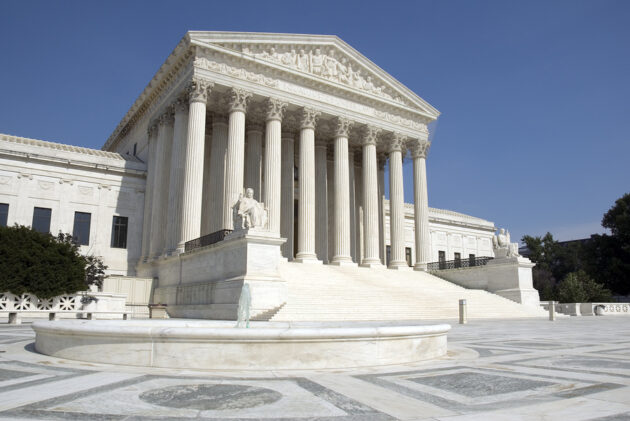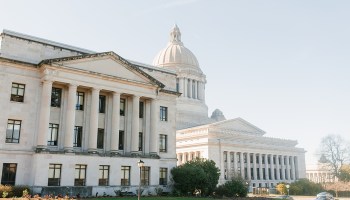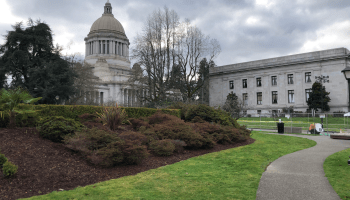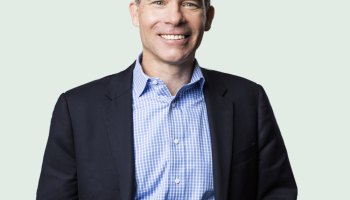
Opponents of the capital gains tax in Washington state are not giving up.
Conservative think tank Freedom Foundation asked the U.S. Supreme Court on Monday to hear an appeal in another bid to overturn the state’s new capital gains tax law.
In its petition for certiorari, asking the U.S. Supreme Court to review a lower court’s ruling, Freedom Foundation said the tax will have federal implications because it allegedly violates law that prevents states from regulating interstate commerce.
The capital gains tax sparked controversy within the tech industry because it targets stocks, a key part of compensation for many startup founders and their employees. Some business leaders said the new law would drive business out of Washington state, particularly with the adoption of remote work during the pandemic.
Advocates say the tax is one way that Washington’s regressive tax laws can be altered to help low-wage earners and level the playing field for people of color and rural communities who are overrepresented in low income brackets.
Freedom Foundation, based in Olympia, Wash., says the capital gains tax could apply to the sale of assets held in other states by Washington residents.
“Had this case been heard by a federal court instead of state court, it would already have been thrown out,” Eric Stahlfeld, chief litigation counsel for Freedom Foundation, said in a statement. “It violates the ‘dormant’ Commerce Clause. States simply have no power to interfere with another state’s power over activities within that sovereign state.”
Washington state has no personal or corporate income tax and generates most of its revenue through sales, property, and business and occupation (B&O) taxes.
The new law imposes a 7% tax on capital gains of more than $250,000 from the sale of stocks and bonds, excluding revenue from real estate and retirement accounts, among other exceptions.
The tax was approved by Washington state legislators two years ago, but it faced legal challenges over whether the tax is an income tax or a sales tax.
After Gov. Jay Inslee signed the measure into law, its opponents — including the Freedom Foundation — successfully blocked it in Douglas County court.
Brian Huber, a judge for the Douglas County Superior Court in central Washington, said in a written decision that the tax “shows the hallmarks of an income tax rather than an excise tax.”
As a result, he said it exceeds the maximum annual property tax rate of 1% — income tax is legally a property tax in Washington — and “violates the uniformity requirement” for taxes as established by the state’s constitution because it imposes a 7% excise tax on capital gains, but only for gains of more than $250,000.
However, earlier this year, the state Supreme Court ruled the tax constitutional. In the court’s 7-2 opinion, Justice Debra Stephens wrote that the tax is “appropriately characterized as an excise because it is levied on the sale or exchange of capital assets, not on capital assets or gains themselves.”
The tax ended up generating $849 million this year, which was more than expected. The revenue will go toward school construction and other education programs.
Freedom Foundation said if its latest challenge is successful, “it could strike down the entirety of the tax and potentially open the door for the refund of taxes previously paid.”
The U.S. Supreme Court only accepts 100-to-150 of the more than 7,000 cases it is asked to review each year via a petition for certiorari.
University of Washington law professor Hugh Spitzer, who previously argued that the state courts would rule the tax constitutional, told GeekWire he doesn’t expect the U.S. Supreme Court to take on this issue. He said the Commerce Clause arguments were carefully considered at the state court level.
“I don’t see why the U.S. Supreme Court would bother,” Spitzer said. “This is a state law issue, and the federal courts stay out of interpretation of state law.”
The people listed as petitioners on the petition filed Monday are Chris Quinn, Craig Leuthold, Suzie Burke, Lewis Randall, Rick Glenn, Neil Muller, Larry & Margaret King, and Kerry Cox.
“Despite losing over and over again, these extremists are desperately trying to grab $800 million a year from Washington’s child care and education to give it to ultra-millionaires and billionaires,” Treasure Mackley, executive director of Invest in WA Now, said in a statement.
Invest in WA Now estimates the tax will impact 0.2% of Washingtonian state taxpayers.




